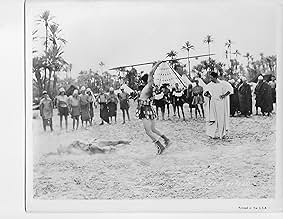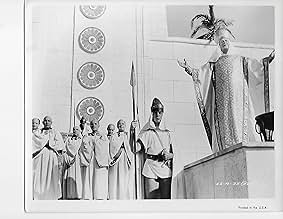I first saw the Italian-French co-production "Salambò" in the early 1960s, distributed in Panamá by 20th Century-Fox, as a CinemaScope/Color by DeLuxe production and dubbed in English, as "The Loves of Salammbo". Since the memory of it had persisted, I was curious about it for more than 50 years, until 2014 when I could see it again: this time in its French version, which is 23 minutes longer than the American, and 15 minutes shorter than the original Italian cut. I always remembered that it was different from the regular peplums of its day, and this time I could verify that it had higher production values, that the story is more elaborate than the typical "sword and sandal" show, and above all that it is not a proper peplum, if we stick to its original definition of films that deal with Greco-Roman mythology, heroes and gods. This is a historical drama based on fact, about the mercenary rebellion against Carthage in the 3rd century B.C., when the city had not paid the promised gold to hired barbarian soldiers, after they had shed blood for five years in the name of Carthage; and it is also a fictional love story of mercenary leader Mathos (Jacques Sernas) and Carthaginian high priestess Salambò (Jeanne Valérie), daughter of general Amilcar Barca (Riccardo Garrone). There is a greedy, wicked traitor in the court of Carthage, Narr Havas (Edmund Purdom), who is lusting after Salambò, wants power and gold for himself, and to get rid of the mercenaries. Based on the respected but little known novel (or long story) "Salammbô", by French author Gustave Flaubert, written after he published "Madame Bovary", the complex tragic war story that he told was simplified, shortened, altered (for example, Narr Havas is originally a mercenary chief), and given a happy ending. Although it looks as if the producers had bigger ambition, and a few sets, scenes and location shooting aim for great spectacle, the truth is that the Italian and French capitals were not enough. There are also some flaws, as Alexander Derevitsky's persistent martial score, the 1960s style of make-up, and rushed transitions, which may be the result of trying to reduce the running time. Although Sergio Grieco was never a highly regarded director, he received good support from Enzo Alfonsi's editing, and cinematographer Piero Portalupi's dramatic lighting, camera movements and set-ups, so the vision of the film is entertaining. Two curiosity notes: the French version includes a love making scene with brief nudity that was cut in Spain, where my DVD copy was issued with the footage restored; and the part of Neshma (Salambò's maid) was apparently played by Italian actress Brunella Bovo in the Italian version (her name appears in the Italian poster) and by Indian actress Kamala Devi in the French cut. I can't remember what performance was used for the American version.
































